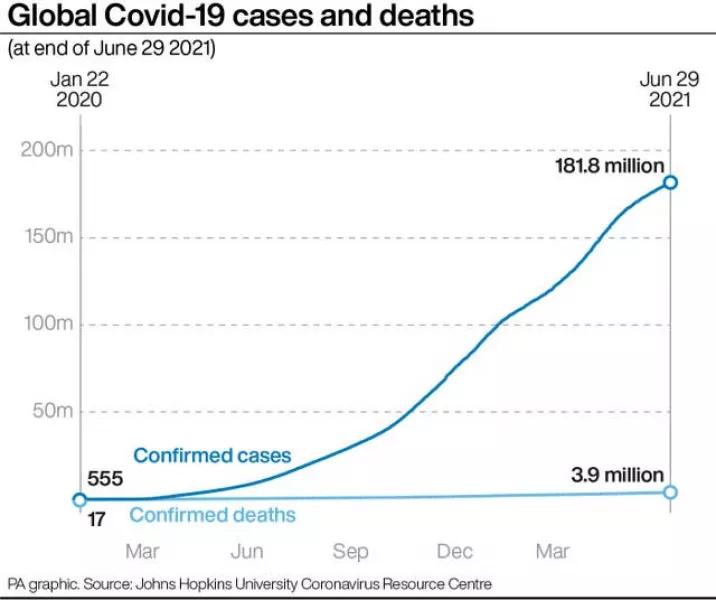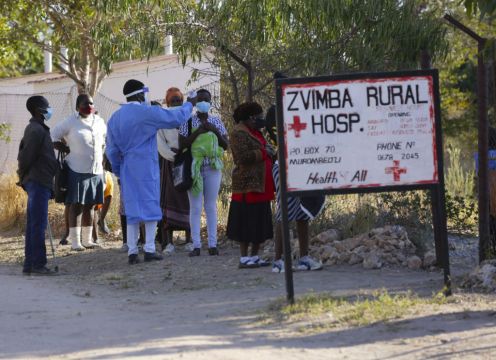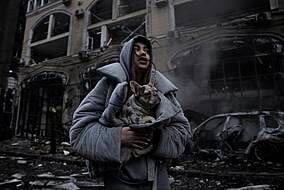A new coronavirus surge is finally penetrating Africa’s rural areas, where most people on the continent live, spreading to places that once had been seen as safe havens from infections that hit cities hard.
Healthcare facilities in the rural areas are poorly staffed and lack the resources to handle the spike in infections, while hospitals in cities are under strain as they are treating an increasing number of people coming from the countryside.
The Delta variant of Covid-19, that has devastated India, has been detected in at least 14 African countries, including Mozambique, South Africa, Namibia, Uganda and Zimbabwe.
For Pelagia Bvukura, who lives in a rural part of Zimbabwe, Covid-19 had always been a “city disease”, affecting those in the capital, Harare, or other, distant big towns.
“There was no virus for us. We only used to hear it was in Harare or other towns or when city people died and we buried them here,” she said recently, referring to the custom in Zimbabwe where those who move to the city often are buried at their family’s rural home.
That is changing now, and residents worry that the next graves being dug could be for their neighbours — or even themselves.
Ms Bvukura’s village of Zvimba, 68 miles from Harare, has yet to record a major spike in infections, but it sits in a province that is the current epicentre of the virus.
“It is now on our doorsteps. It’s scary. We don’t know how to protect ourselves. We have never dealt with such a problem before,” she said.
Like many here, she was not wearing a mask and is yet to be vaccinated.

Africa has recorded over 5.3 million cases and is experiencing the worst of a wave driven by more contagious and deadlier variants. The continent recorded a 39% increase in new cases in the week from June 14-20, according to the World Health Organisation.
“We are starting to see an upward trend in the rural and marginalised areas,” said Edward Simiyu, Uganda country director of the charity group Mercy Corps, in a statement earlier in June.
In Mozambique’s remote Tete province, a hotbed of infections where the delta variant was recorded, President Filipe Nyusi expressed concern.
“We don’t have many beds. We don’t have many health staff in Tete either,” Mr Nyusi said.







